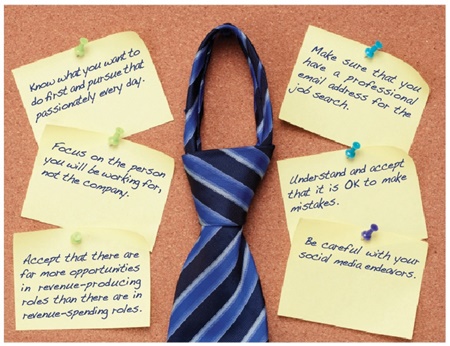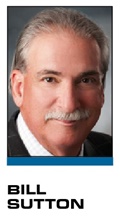It’s that time of year when Generation Next (or however we choose to refer to them) prepares to enter the workforce — either as interns or, with hope, as employees. I offer the advice below based on my experiences in placing students for the past 30 years, combined with my experiences as a sports executive and consultant during that time. I have shared these suggestions with my students over the years and have added to and modified the suggestions as technology and other influential factors have necessitated change.
■ Know what you want to do first and pursue that passionately and consistently every day.
The world in which we live is evolving much too fast and moving in so many directions that the idea of one job or career for a lifetime is a little utopian and outdated. Select one option as a priority and understand that it may be only the next chapter in the book of your life. Set aside time each week to pursue this identified opportunity and to identify key contacts that can help introduce you to the correct people to maximize consideration.
■ Understand and accept that it is OK to make mistakes.
We learn from experiences. Whether those experiences are positive or negative, there are still lessons to be learned. When you make a mistake at age 22 or 23, there is still plenty of time to pursue another option that might be a better fit.
 |
| Photo by: PHOTO ILLUSTRATION / GETTY IMAGES |
■ Accept that there are far more opportunities in revenue-producing roles than there are in revenue-spending roles.
Revenue-producing roles (read that as sales or fundraising) are usually more secure in challenging economic times, and future opportunities will come and find you. However, if you are not equipped to be a revenue producer, don’t force yourself into that role. If you are unsuccessful in that role, you will become unhappy, and we work far too many hours in the sports business to spend time doing something that makes us unhappy.
■ Focus on the person, not the company.
With a few exceptions (Apple, Disney, Google or Nike to list a few), choose your opportunity based upon the person you will work for rather than the organization that will employ you. This person will develop, advise and mentor you, as well as prepare you for the next opportunity. It is important that you see your “boss” as a combination of teacher/coach, enabler, facilitator, mentor and leader.
■ When in doubt, go with a smaller group.
If you are uncertain as to what you would like to do or what you are best equipped to do, consider working in a smaller organization. Fewer employees (or interns) means more opportunities to perform a variety of roles, exposing the employee or intern to more jobs and a greater chance to test drive many of them. Many people are happier being generalists and like to doing a variety of things. Others like to have a specific role and become very “deep” in that role — an expert. Decide which of these approaches is the best fit for you at that point, knowing we may change from one to the other.
■ Résumés and cover letters are essential.
They should demonstrate two key concepts: how you have spent your time preparing for this opportunity, and how well you communicate. Those two aspects will determine how you are perceived as a candidate, as well as what type of representative will you be for your new employer/organization. Make sure that whoever is reading your résumé is able to understand exactly what it is you have done in previous internships, jobs and volunteer activities. Proofread closely to make sure there are no mistakes.
■ Be careful with your social media endeavors.
Remember that whatever you put out there is there for eternity and can be very damaging if it conveys immaturity or anything that could reflect poorly upon you and on your organization. Party pictures and other impulsive posts should be avoided. Think before you tweet or post.
■ Make sure that you have a professional email address for the job search.
Partygirl@gmail.com is probably not how you would like to be perceived. Same advice for your voice mail message: Be professional in all that you do. Once you begin applying for professional opportunities, you cease being a college student and become a potential employee. Act like the person you would like to become.
■ Invest in yourself.
Engage in activities that help prepare you for the interview. Seek out job-shadowing opportunities, informational interviews and mock interviews. Use these opportunities to network, find out more about people who do what you think you would like to do, research companies and people for your job search, and prepare a list of interview questions that you would ask. I provide my students with a subscription to TeamWork Online because it provides job descriptions, information on available opportunities, and job-seeking suggestions and tips. Invest in such a service for yourself to help collect the necessary information to make the quest more manageable.
■ Three books to read:
“The Power of Who,” by Bob Beaudine
“The Brand You,” by Tom Peters
“Good to Great,” by Jim Collins
The sooner you start, the better. So underclassmen, it is not too early to put these thoughts into practice. To paraphrase Shakespeare, the more you know thyself, the easier it will be to understand what type of opportunity you are looking for. Be honest with yourself above all.
Bill Sutton (wsutton1@usf.edu) is the founding director of the sport and entertainment business management MBA at the University of South Florida, and principal of Bill Sutton & Associates. Follow him on Twitter @Sutton_Impact.





